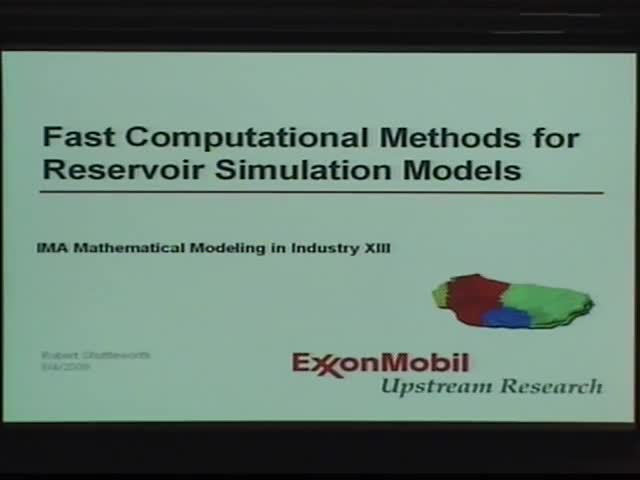Team 5: Fast computational methods for reservoir flow models
Presenter
August 5, 2009
Keywords:
- PDEs; fluid mechanics
MSC:
- 35Q35
Abstract
Project Description:
Reservoir simulations are used in the oil industry for field development and for production forecast. The heart of a simulator is a computer program that solves for the fluid flow within the reservoirs. The flow of fluid is modeled by a system of coupled, nonlinear partial differential equations (PDEs). These equations are then discretized in space and time. When using an implicit time discretization, a system of nonlinear algebraic equations needs to be solved at each time step. This is typically done using Newton’s method on a set of linearized state equations. At each Newton iteration, a linear system must be solved to update the set of state variables.
The challenge of performing accurate and realistic simulation is that the number of unknowns can be large, requiring the solution of a large system of nonlinear algebraic equations at each time step. The task in this project is to understand the bottleneck in the calculation and find ways to speed it up.
We will conduct our research using a MATLAB based, 2-phase flow simulator with fixed spatial discretization and adaptive time stepping. We consider two different time discretization schemes. The first scheme is fully implicit, while the second is based on an operator splitting method.
References:
Fundamentals of Numerical Reservoir Simulation
Donald W. Peaceman
Elsevier Science Inc. New York, NY, USA
Finite Volume Methods for Hyperbolic Problems
Randall J. LeVeque
Cambridge University Press
Prerequisites:
Background in numerical analysis, numerical linear algebra, scientific computation, and numerical methods for partial differential equations. Experience in MATLAB programming.
